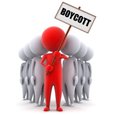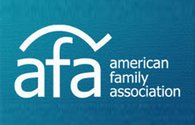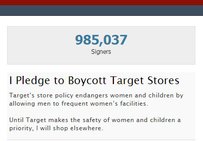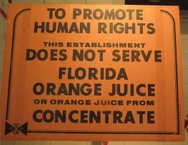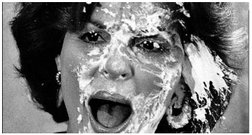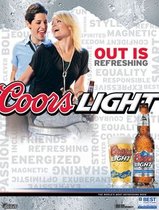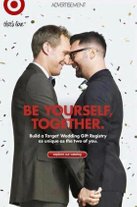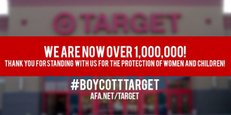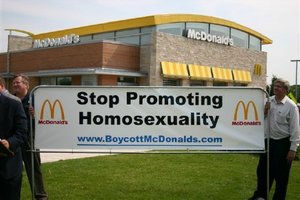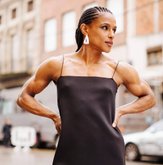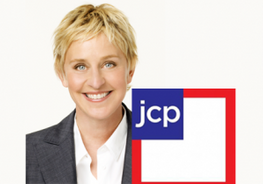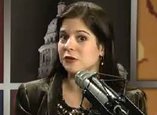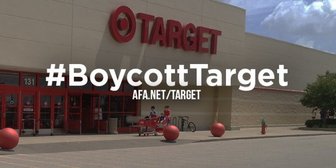Marketing the Rainbow
Click on the pictures for a larger version
Introduction
One of the main targets of Marketing is to sell more. Another is to get your name out there, and be appreciated. So, what are the downsides of these goals? What if the consumer does not like your marketing? The most neutral effect would be: nothing. The prospective client does not feel addressed by the advertising and marketing activities, and does not become a customer. But there are also negative effects - or at least the fear for them. And such effects can go to extremes.
The most powerful tool in this respect is the Boycott. Wikipedia defines boycott as: “An act of voluntarily abstaining from using, buying, or dealing with a person, organization, or country as an expression of protest, usually for political reasons. It can be a form of consumer activism (…) normally considered a one-time affair designed to correct an outstanding single wrong.”
The organized boycott
An individual boycott (by one person) of a brand does not have much effect- it is as effective as the neutral reaction: one just does not buy the product. One of the fundamental necessities of a successful boycott is that a group must either include or attract enough regular customers to have an impact. Thus, publicizing the boycott is crucial. Coverage by the news media can raise awareness of the boycott and its rationale.
It gets powerful when the organized boycott comes along. In the past 40 years, we have seen quite a number of those in the field of Gay Marketing, in two ways:
a. by the LGBT community (and their allies)
b. by opponents.
Not surprisingly, latter most often come from conservative organizations (in the USA - even extending their tentacles to Europe sometimes), who have a moral problem with “the gay life style” (or what they call the “gay persuasion” or most often “gay agenda”), and solely by that prejudice try to force companies to withdraw support for LGBT causes in the widest sense of the word, including mere advertising in the gay media. The right-wing American Family Association (AFA) has been the mastermind of most major boycotts against ‘gay friendly companies’. They were also responsible for a cyber attack on the website of The Commercial Closet Association.
Other boycott champions are Liberty Counsel Action, The National Organization for Marriage and One Million Moms - the following of latter counts less than 60,000 members on Facebook, whille they have just 3,500 mostly-male Twitter followers. The group has launched an extensive range of anti-LGBT boycotts in the past, snubbing everything from Archie comics to cracker brand Honey Maid over a perceived ‘homosexual agenda’. More recently they called on good honest Christians to boycott Star Wars-themed soup, Urban Outfitters, the Disney Channel, Target, The New Normal, Jennifer Lopez, TV show Impastor, JC Penney and Glee.
Note: when I say "champions" I am not referring to their victories, because they have been few and far between. In fact, often the opposite was achieved.
The positive side of a boycott
Adweek wrote: “Companies generally don't like people to boycott their products. But there's an exception: when the American Family Association is the group doing the boycotting. A rebuke by the AFA has the rare power to galvanize immediate, widespread support for a brand, rather than opposition to it, as bloggers deride what they see as the AFA's extreme conservative views. (The AFA has pockets of support, but they are vastly outnumbered.)”
Howard Buford, president and CEO of Prime Access, a national advertising firm that specializes in reaching diverse audiences believes homophobic boycotts are on the wane: "They haven't been successful, and at this point there are so many companies in the LGBT market that it's hard to find one that isn't. On the other hand, the gay community has organized a few boycotts against brands or companies that negatively dealt with LGBT issues, such as employee benefits, sponsorships or even patronage. So far the outcome of all these boycotts almost exclusively was a ‘win’ for the LGBT side: this can be explained by the fact that the reasons behind the boycott by the conservatives are gradually becoming obsolete and surpassed by public opinion and subsequent legislation, for instance in the field of same sex marriage."
Some examples
Florida Orange Juice Boycott
The first LGBT boycott to receive considerable media attention took place in 1977 when Anita Bryant, a pop singer, former Miss Oklahoma and a Miss America second runner-up, then employed as a spokesperson for the Florida Citrus Commission, founded an organization called Save Our Children, which was dedicated not to the welfare of children but to the repeal of a Dade County, Florida ordinance that protected gay men and lesbians from discrimination in employment and housing.
Initial reactions were mixed, but soon momentum for the boycott grew when Harvey Milk, then a columnist for the Bay Area Reporter, called for support, comparing the action to the Boston Tea Party. Other organizations and people followed: the San Francisco Tavern Guild stopped using Florida orange juice, as did gay bars and restaurants throughout the country. The American Federation of Television and Radio Artists unanimously voted "to deny their services and talents to Bryant." The boycott was supported by many celebrities, including Barbra Streisand, Bette Midler, John Waters, Carroll O'Connor, Mary Tyler Moore, Billie Jean King, and Jane Fonda.
Although at that time Dade County voters repealed the gay rights ordinance by a large majority - dealing a blow to the gay rights movement - the county finally passed a new LGBT rights ordinance in 1998. A repeal effort by conservative Christians in 2002 failed. When she was pied in the face by a gay activist in 1977, Bryant delivered her best line: "Well, at least it's a fruit pie!" {for the record, it was a banana cream pie} before turning into prayer and forgiveness.
Anita played with karma: her career with the Florida Citrus Commission ended in 1979 because of the negative effects of the boycott, all the turmoil led to the divorce with her first husband (who blamed the gays for that) in 1980, after which some fundamentalist audiences and venues shunned her. She left a trail of debt and bankruptcies.
Songs were made about her: David Allan Coe wrote the song "Fuck Anita Bryant", and Dutch legend Zangeres Zonder Naam sang "Luister Anita" in a rare display of political awareness.
As a final fact of irony: she is still alive in 2021, and has witnessed the progress in the USA that led to same-sex marriage, and the aftermath of the great increase in Marketing the Rainbow. In 2021 her granddaugther got married to a woman. Her reaction was: "Oh".
The gay community continues to regard her name as synonymous with bigotry and homophobia.
Coors
Another significant boycott was that against the Coors Brewing Company, initiated in 1973 by labor unions protesting the company's discriminatory attitude. They were soon joined by gay men and lesbians, African Americans, and Latinos dissatisfied with the corporation's practices. LGBT activists were particularly incensed that the brewery put prospective employees through a polygraph test to determine if they were homosexual: homosexuals were not hired. To enlist the support of the gay community for the boycott, union officials approached Harvey Milk, who agreed to encourage participation in the boycott in exchange for jobs for gay men on Teamsters Union beer trucks.
After several years of ignoring the boycott, in 1978 Coors made the minimal concessions of dropping the sexual orientation question from the polygraph test and announcing a non-discrimination policy.
The boycott was still in progress when in 1995 Coors gave domestic partnership benefits to its gay and lesbian employees and began to court LGBT consumers by sponsoring Denver's PrideFest and placing ads in publications targeting the LGBT market, including The Advocate. At the same time the Coors family's foundation provided strong financial support to right-wing groups opposed to LGBT rights.
They changed their ways. For the past 12 years, MillerCoors has achieved a rating of a perfect 100% on the Human Rights Campaign Corporate Equality Index.
Target
Target, with a history of LGBT support (for instance as annual sponsor of the Twin Cities Gay Pride Festival and the ad on the right for a gay wedding registry), became the target of a boycott by LGBT in 2010, when it was discovered they had donated $100,000 to pay for TV ads supporting the gubernatorial campaign of Tom Emmer, who wanted a ban on same-sex marriage. The donation was made for the business stance of the candidate, not his social views.
Target had clearly made a mistake by not checking all facts, or rather underestimating the coming to light of their donation - but the backlash was strong. Target initially declined to publicly discuss the matter in detail, but with protests mounting, Target's chief executive, Gregg Steinhafel, wrote a letter of apology to employees, explaining that the company's political donation had been a misguided effort to foster economic growth. "While I firmly believe that a business climate conducive to growth is critical to our future, I realize our decision affected many of you in a way I did not anticipate, and for that I am genuinely sorry. The diversity of our team is an important aspect of our unique culture and our success as a company, and we did not mean to disappoint you, our team or our valued guests." He added that the retailer would more closely review any future political contributions.
Note: as it happened, Emmer was running against former U.S. Sen. Mark Dayton, whose family founded Target before selling it. Dayton supports same-sex marriage. And won the election.
On the other hand Target was not just the victim of an LGBT boycott, but also won the attention of the conservatives, more than once.
In August 2014, Target signed on to a legal brief supporting marriage equality. The National Organization for Marriage, the Liberty Counsel and American Decency Association immediately called for nationwide boycotts, saying the company’s public support for same-sex marriage is a “slap in the face to millions of pro-family customers.” The boycott failed miserably, generating only 3,000 signatures. Target proceeded to release a commercial featuring two gay dads. Their website now sells items like Pride T-Shirts, gay disco hits, gay themed DVD’s and many books on the subject - in fact the word “gay” returns 430 items in their search engine.
When the controversial "Bathroom Discussion" started in 2016, Target was an early supporter - of the correct side. In April they announced that they would welcome transgender customers to any bathroom and fitting room that matched their gender identity. This was followed by an immediate reaction from the usual suspects, who demanded a boycott because Target “opened the door for sexual predators to victimize women and children”. More than 1.4 million people signed the pledge, but Target did not back down. They invested $20 million to install single-occupancy toilets ánd saw their traffic and turnover decline for the first time in years.
The debate is whether there is a correlation between those two facts. CEO Brian Cornwell told Fortune magazine in May that the transgender bathroom policy has nothing to do with their financial wellbeing. Analysts say the real reason shoppers are abandoning Target is because they can find better prices and more convenience elsewhere, like Amazon en Walmart.
McDonald’s
In 2008 the AFA had McDonald's in its crosshairs, calling for a boycott after a $20,000 donation to the National Gay and Lesbian Chamber of Commerce. AFA chairman Donald E. Wildmon: "We are not telling McDonald’s who they can hire to work for the company, nor are we demanding that they stop serving Big Macs to homosexual customers. This issue is about the world’s largest fast food chain allying itself and partnering with an organization that lobbies Congress to enact laws that we feel can be used to repress religious freedom or undermine the sanctity of marriage."
McDonald's stood by its support of the chamber and received swift backing from bloggers practically everywhere - something the chain must have been enjoying, given the abuse it usually suffers from environmentalist and anyone who cares about their health. On The Huffington Post, Chris Kelly offered this widely held opinion: "There are billions and billions of reasons to hate McDonald's. They took the McRib away, for one, and that burns. There's at least one good reason to like McDonald's: They're being boycotted by the American Family Association."
The blog called After cancer, now what adds: "Sometimes I need a laugh and that's when I check to see what the American Family Association is boycotting. It usually helps me decide where I should shop just to bump up sales figures."
What Would Jack Do? got to the heart of the matter, pointing out that McDonald's was making a purely business decision that had nothing to do with any ethical views at all: "McDonalds (and, indeed, any business) is in business to make a profit. A business has the best chance of maximizing profits by appealing to the widest customer base possible. What incentive, then, does McDonald's have in being divisive and discriminating against people whose money is the same color as those AFA finds more 'acceptable'?"
H&M
In 2016, One Million Moms launched a protest against H&M, for using a transgender model in the campaign ‘She’s a Lady’, featuring a range of women modelling different styles: “1MM is not sure of H&M clothing company’s thought process behind their new television ad, but if they are attempting to offend customers and families, they have succeeded. H&M’s newest ‘She’s A Lady’ commercial includes what appears to be a man dressed as a woman in one segment. H&M Marketing Team may have thought this type of advertising was politically correct, but not only is it disgusting and confusing for children, it is pushing the LBGT agenda.”
Ironically, the model was female Champion Muay Thai Boxer Fatima Pinto, not a transgender. Even more ironically, the ad does also fleetingly feature H&M model Hari Nef, who is transgender, but 1MM apparently didn’t notice.
The 2012 “JCPenney case”
Early 2012 JCPenney announced that Ellen Degeneres, who was a "store associate" in her teens, would be the company’s new brand partner, as part of the company’s brand transformation. This was amidst the increasing fervor (and battle) over same-sex marriage. Shortly after the announcement, One Million Moms began a boycott of the store, demanding they fire DeGeneres because she is gay. The campaign was labeled a “hate campaign” by Advertising Age .
OMM stated “By jumping on the pro-gay bandwagon, JC Penney is attempting to gain a new target market and in the process will lose customers with traditional values that have been faithful to them over all these years.” They urged their audience to “Ask JC Penney to replace Ellen DeGeneres as their new spokesperson immediately and remain neutral in the culture war.”
The campaign did not have the desired effect - on the contrary: even archconservative Bill O’Reilly of FOX News to everyone’s surprise (including her own) defended Ellen against the OMM, comparing the protest with “the McCarthy era of the 1950s” and concluding “This JCPenney thing is a witch-hunt and it shouldn’t happen”.
GLAAD launched the Stand Up For Ellen Campaign and consumers were taking to the social web to pledge that they would shop at JC Penney stores more than they ever had before. They also ignited a national conversation about anti-LGBT employment discrimination, drawing significant attention to the fact that in 29 states a person can be fired simply because they’re gay, while in 34 states a person can be fired simply for being transgender." Nearly 50,000 advocates and allies joined GLAAD in the fight, officials report on GLAAD's website.
Finally, Ellen addressed One Million Moms' campaign on her national TV show, poking fun at the activist group in a video that subsequently went viral. The OMM Facebook page then disappeared, and was instead followed up by pages like ‘STOP One Million Moms’, ‘One Million Gays for JC Penney’, ‘One Million Moms Shopping at JCPenney For Ellen’ and finally ‘1 Million People Who Support Ellen for JCPenney’, whose numbers quickly surpassed that of One Million Moms.
Bloggers organised local ‘shop-in’ events, a Gay Day and an LGBT flashmob in New York City. “JCPenney may have lost a few moms, but they gained an army of enthusiastic and loyal new customers who now trust and believe in the brand. In a recession, brand trust is gold dust and in the case of JCPenney can give them buoyancy as customers renew their patronage or choose to visit for the first time. Benefits of which will be felt long after the next fire sale.”
The first five Ellen ads produced by JCPenney were broadcast during the 2012 Oscars - otherwise known as the “gay Super Bowl”. They were dubbed “One of the highlights of Hollywood’s biggest night” by sites like SheWired.
Greg Clark, Penney's senior VP-creative marketing: "[Ellen] is amazing. I can't think of anyone that would be a more positive and aggressive fan and proponent, partner for us. She believes in our partnership. ... We love that she represents diversity which is what we feel this country is all about. In our marketing images you'll see every race, creed, type interacting as couples, as friends. We're very focused on representing America in its true form, so it's not a maudlin old-fashioned America."
Even the company's CEO, Ron Johnson, chipped in: "We thought Ellen would be the perfect person because we all trust her -- she's an honest, straightforward person with extraordinary values." said Mr. Johnson on "CBS This Morning." "We stand squarely behind Ellen as our spokesperson." The fact that this matter was not just discussed by the responsible managers, but even by the CEO indicates that this area is still a highly sensitive one.
Penney went one step further, rebuffed critics and launched a lesbian-focused catalog ad for Mother's Day that the company followed with a two-dads family - a real family - for Father's Day.
Just weeks after the announced boycott, Monica Cole, director of the OMM told OneNewsNow that members were backing down and had decided to move on to other issues. Still, as if this would mean the action was justified, she noted, "We have heard back from men and women -- not just moms -- saying they will no longer shop there at JCPenney, as long as Ellen DeGeneres is their spokesperson." Meanwhile, she found it “interesting” that Fitch Ratings recently downgraded JCPenney's credit rating to "junk". Unfazed by the failure of their boycott, OMM targeted Urban Outfitters after the clothing retailer featured a photo depicting a steamy kiss between two female models in its 2012 catalog.
Note: OMM cannot be accused of being just anti-gay. Their indignation is not only about the “homosexual agenda”. Later that year they were once again attacking Urban Outfitters because its holiday catalog includes items that have naughty words on them. Among those products is a "Merry Christmas, Bitches" coffee mug and a "Let's Fucking Reminisce" scrapbook.
Kraft
I did not want to leave out Kraft... if only for the visuals they used. When Kraft launched their “Let’s get Zesty” campaign in 2013 they used model Anderson Davis to add some spice to their product. Anderson appeared half dressed - or even naked, with the spicy bits covered up discreetly - which caught the attention of One Million Moms in their crusade to keep trash out of the media. They called the ad “disgusting”, saying that the company had “gone too far.” They were a bit late to the game though, towards the point where Kraft had already finished the campaign. Due to the renewed interest, generated by OMM's boycott, Kraft decided to expand the run of their ads and even add new visuals and some commercials. One blogger observed: “the undressed salad dressing dude can take the heat but still got out of the kitchen.”
Again, a failed boycott - with actually the reverse effect. Granted, this campaign was not aimed at the gay market specifically, but it mixed in well with the attention it got, both from opponents and from fans.
Kraft did dabble in gay marketing without much opposition, with Grey Poupon mustard, the infamous rainbow Oreo and Jacob's tongue-in-cheek "Kaffeetante".
And then there was Barilla, whose CEO messed up their PR strategy when he mentioned on a radio show that he was against same-sex marriage. OK - Guido Barilla apologized for his comments not once, but twice, saying that he has "always respected every person, including gays and their families, without any distinctions" and "never discriminated against anyone." The company created a diversity and inclusion board, launched a training program for employees and contributed to LGBT causes. Within a year they scored a top rating on the Human Rights Campaign's list of LGBT-friendly employers - also earning points for positively engaging with the LGBT community. Barilla said: "I am proud to say that, as a result of these discussions, we have all learned a great deal about the true definition and meaning of family, and over the past year we have worked hard to reflect that throughout our organization."
There was PepsiCo who added “gender identity and expression,” and “domestic partner benefits” to their company values, donated large sums of money to HRC and PFLAG and got the scorn of the AFA in 2009 (also, while they were at it, for the UK ad that "promoted the gay lifestyle"). We saw Campbell soup being prepared by two lesbians, where the AFA apparently had doubts as to the quality of the soup. Starbucks came out strongly in support of same-sex marriage, much to the chagrin of the National Organization for Marriage, whose “Dump Starbucks” boycott was steamrolled 12:1 with a countercampaign by SumOfUs.org. Both General Motors and Ford were "victims" of the AFA. And the list goes on.
Suffices to say that all these boycotts did not result in reversal of the decisions they were launched for, and hardly ever had much effect - except when the boycott came from the LGBT community with their allies.
Like in Australia in 2017, when the discussion about marriage equality ran high. Coopers, Australia's largest independent beer company, found itself at the centre of a boycott over a video discussing same-sex marriage by religious group the Bible Society. The video showed two MPs debating their opposing views as they clutched Coopers beers. It led to claims Coopers was against marriage equality, a claim it denied - and they added they "did not give permission" to be included in the video. However, around that same time the brand had celebrated the Bible Society's 200-year anniversary with a commemorative beer featuring Bible verses. Because of all this commotion, Coopers released a statement, which said it had cancelled the release of its Bible Society commemorative cans and would be joining Australian Marriage Equality. "Our company supports marriage equality," Director of Corporate Affairs Melanie Cooper said.
So it worked out for all parties - except maybe the Bible Society.
Article last updated: Mar 15, 2021
© 2022 BRIGHT Marketing Solutions
